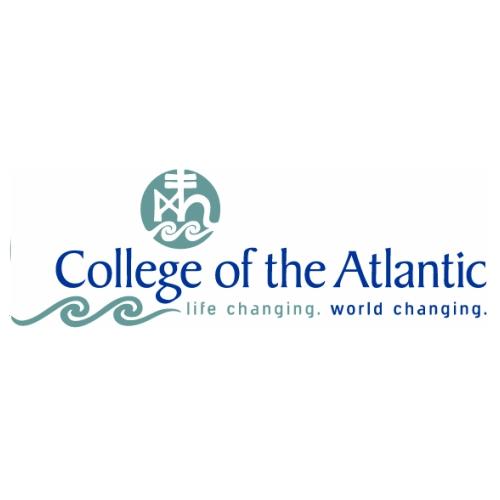
BAR HARBOR, ME—Island Institute and College of the Atlantic — two coastal Maine institutions with a history of finding sustainability solutions — will launch a new partnership at a special event at the College of the Atlantic on Thursday, August 14 at 6 p.m.
“An Evening to Honor Polly Guth and Launch the Fund for Maine Islands,” will feature a dinner and reception honoring philanthropist Polly Guth with a special guest appearance by renowned television journalist Bill Moyers.
Officials at College of the Atlantic and the Island Institute said they created the Fund for Maine Islands to seek solutions that will sustain island and coastal ecosystems, and to share these models for sustainability around the world in an era of increasingly dire environmental and economic challenges.
Funded by a $2 million challenge grant from the Partridge Foundation, the Fund for Maine Islands will address four areas of critical concern for Gulf of Maine islanders: agriculture and food; energy; education; and adaptation to climate change.
With joint programming, shared intellectual resources and coordinated fundraising, the Fund for Maine Islands will develop solutions in an academic setting that can then be brought to reality through the work of islanders and students, creating a new model for community development and higher education.
“We envision that years from now, because of the Fund and our partnerships with committed islanders, Maine’s island communities will still be vibrant and thriving,” College of the Atlantic President Darron Collins ’92 said. “They will also be valued as role models for solving some of the fundamental challenges that face island and remote communities elsewhere.”
“Our organizations will have the flexibility to listen for the highest-priority challenges facing island communities, and then find ways to partner to work with leaders on solutions to these challenges,” said Island Institute president Rob Snyder. “We could never do alone what we are now able to dream up and implement together.”
One of the first Fund projects will bring together College of the Atlantic faculty and students, five island residents, and Island Institute staff in a yearlong intensive course in energy leadership.
From Sept. 22 through Oct. 4, participants will attend the Samsø Energy Academy in Denmark, develop locally-appropriate energy strategies for their home islands, and receive support in project financing and implementation to improve Maine’s energy future.
Maine islanders pay some of the highest energy rates in the United States, but efforts from the Samsø project have the potential to reduce these costs, project organizers believe.
Participants will learn firsthand from residents of this farming and tourist community how Samsø became carbon-negative via efficiency upgrades, wind and solar power production, biomass heating, and other elements of a renewable energy portfolio. They’ll also develop project ideas and feasibility studies for energy initiatives that can help their communities become more sustainable; learn how to share what they’ve learned with their broader communities; and implement projects by using project stipend funds, ongoing technical support, and by applying new knowledge in project financing and grant writing.
ABOUT COLLEGE OF THE ATLANTIC
College of the Atlantic was founded in 1969 on the premise that education should go beyond understanding the world as it is, to enabling students to actively shape its future. A leader in experiential education and environmental stewardship, COA has pioneered a distinctive interdisciplinary approach to learning—human ecology—that develops the kinds of creative thinkers and doers needed by all sectors of society in addressing the compelling and growing needs of our world. For more, visit http://www.coa.edu.
ABOUT THE ISLAND INSTITUTE
The Island Institute works to sustain Maine’s island and remote coastal communities, and exchanges ideas and experiences to further the sustainability of communities here and elsewhere. Now in its 31st year, the Institute works in a variety of program areas, including community development, economic development, education, energy, marine resources, and media. For more information, visit http://island.institute